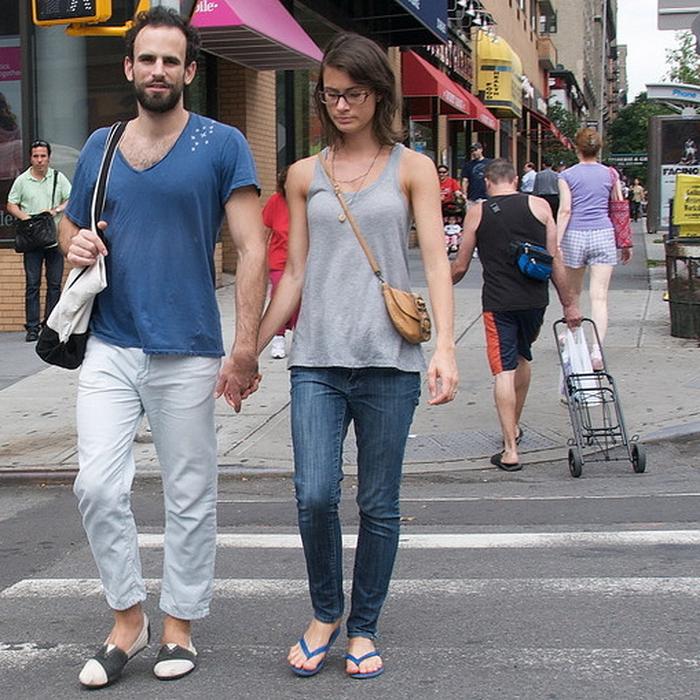
This article is from our friends at LearnVest, a leading site for women and their money.
I used to be the kind of girl who required a stiff drink when logging into my online banking account. If it was between a stocked closet and a stocked fridge, I’d gladly go hungry. And don’t even get me started on my previous understanding of a Roth IRA (frankly, there was no understanding).
Today, at 28.5 years old, I am proud to report that I pay off my credit card every month, have a healthy sum in savings, and am preparing to work with a financial advisor on a low risk investment plan (and yes, I actually know what that means!).
If you’re anything like me, you’re probably irked by the premise of this piece, this idea that I only got my financial act together because of a man.
I hear you. I am you, so let’s change the title of the piece to, “How investing in a relationship made me realize it was time to invest in my life… through financial investments.” Now do you see why the first title is a little catchier?
Here is my story, and I promise it has little to do with 1950s stereotypes of the man controlling the checkbook.
Six months ago, my boyfriend and I started to talk about moving in together. It was a logical next step based on how our relationship was progressing and what our plans were for the future. But despite all my confidence in this decision, I was nervous. I was now responsible for contributing to half of a home (or, in this case, a one-bedroom rental, but still), and I knew that I wasn’t as financially stable or savvy as my boyfriend. This brought me to my first moment of realization/transformation:
I didn’t want to cede financial control to my boyfriend
I’ve known women who handed over the money reins once they moved in, and I knew I wouldn’t be comfortable with that situation. More importantly, I wanted my boyfriend to know I could be trusted to understand our finances—both independent and someday joint—and to help him make our money decisions. This prompted me to do some good old-fashioned research to better educate myself about short and long-term savings plans.
I negotiated a slightly higher yield on my savings account through my bank, opened up a second credit card with better cash rewards, and kept track of my weekly spending to determine where I was going overboard (read: $4 lattes).
The more I learned, the more I realized that there were little things I could be doing to increase my slush fund savings—the money you keep for a rainy day, not the mighty retirement fund—which lead me to another conclusion:
I wanted to save for big expenditures versus small purchases
When I lived in Manhattan on $30,000 per year, I had a closet full of fabulous clothes and the rattiest furniture known to man. At that point in my life, spending frivolously didn’t bear much consequence. Now I want a nice outdoor lounge chair for our backyard and a new mattress for our bed. My priorities shifted, and after some mourning over the fact that this means far fewer pastel-colored jeans this summer, I’m excited about the bigger “life” items that will last more than one fashion season.
Of course, that’s just the slush fund savings. Forging a life with someone is also an incredible motivator to think about financial security long after the lounge chair and mattress wear out. This is perhaps the biggest change I’ve experienced, but it was shockingly the easiest of them all.
I started to embrace the idea of living below our means to save for our future
When my boyfriend and I first started to discuss moving in together, we planned to find a new, two-bedroom apartment to rent. I would be moving out of a house with friends, and he would be leaving his one-bedroom apartment for something larger. As we started to weigh our options and evaluate our finances (no stiff drinks required this time), we realized we could save a considerable amount of money if I moved into his one-bedroom instead. If things got too cramped, we could always move to a larger space, but for now all the furniture and clothes fit, and the price was certainly right.
I can’t believe I’m going to say this, but the idea of living below our means so that we could afford things like vacations while still investing more in our futures was thrilling.
There are, of course, a few other financial facts that come with the move in. It’s a lot harder to hide four boxes of shoes that you absolutely don’t need when you share a closet, and trips to Target now go down like a “Do We Have Room for That?” game show. But all in all, I feel more secure in my own future and myself now that I’m concentrating on the finances of sharing it with someone else.
That said, I still splurge on fresh flowers at the farmers’ market every week, and my boyfriend has been informed that I always will.
Jessie Rosen is a writer, branded entertainment producer and the author of 20-Nothings, a blog about her 20-something life.
More From LearnVest